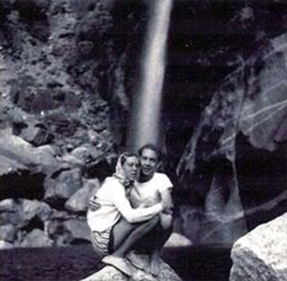
Brian Johnson
Yosemite… For me this one word, this magical place, conjures images of family vacations, memories of parents who have passed on, time spent with family and friends, and of two long weeks every summer spent barefoot and shirtless. This was our family vacation each and every year. As we prepared to leave the park, our last act was to visit the Curry Housekeeping Office to rent tent cabins right on the river for our extended family and friends for the next year’s vacation. We would ride the bus to Happy Isles and hike the trails, or head to the stables and go for a horseback ride. We would always end the day taking the bus to Yosemite Village for ice cream. My folks brought fancy clothes so they could have a night out at the Ahwahnee Hotel.
As a visitor, the fact that concessions operations and NPS operations were two different entities never crossed my mind. It was concessions operations that made it possible for us to have a place to stay, that provided that awesome sense of freedom known as the “park tram” and provided some of the activities we looked forward to every year.
I imagine most visitors are a lot like I was as a kid. They see the concessions operations in exactly the same light as they see NPS operations.
What is our obligation for providing fire and life safety when it comes to concessions operations? Generally speaking, it is no different from our obligations in any other building. We are as responsible for the buildings that are under contract to concessions operators as we are for buildings used solely for NPS operations. Our obligation is the same, but how we accomplish the goal of making a building safe from the effects of fire and smoke differs.
In NPS-operated buildings we may have a contract with the local fire sprinkler company to accomplish the annual inspection and testing required of the fire protection system. In a concessions-operated building we may have the requirement for the annual inspection and testing spelled out in their operations plan. If the concession operator does not meet their contracted obligations, the actions available for the NPS are also clearly spelled out in their contract. Annual maintenance is one aspect of fire prevention; however, what if the building requires major construction, such as was required at the Ahwahnee Hotel in Yosemite to ensure compliance with fire codes? Yosemite’s Fire Education and Information Manager Gary Wuchner shares an example of a true success story in the story titled Ahwahnee Hotel Receives Major Life Safety Renovations.
Visitors come to parks for a variety of reasons, but not to examine how we provide for fire and life safety. Structural fire prevention should go completely unnoticed by them. Unless there is an emergency it’s likely that visitors will not even think about it. They simply expect that the hotel they stay in when they travel, the grand lodge they stay in when visiting our parks, the restaurant they dine in when at home or the one they dine in at our parks all provide the same level of fire and life safety. It is our obligation to ensure they do. Using contracts, operations plans, annual assurance inspections, and taking action when the requirements that we have clearly spelled out are not followed is how we meet this obligation. It is also our obligation to build relationships with concessions operators in the national parks and work in unison with them to ensure we provide a fire-safe environment.
My grandmother passed on her love of the national parks to my father, who passed it on to me. Now I find that I have passed on this love to my son. Another Johnson generation has found a national park to call his own. My son worked for Xanterra in Yellowstone this past summer and had the best summer of his life. So much so it was difficult to convince him to leave and go back to school.
Special memories of being together with families and friends in the national parks are priceless. The National Park Service is obligated to visitors and employees alike to maintain fire-safe facilities. Working together with our concessions partners will ensure that our visitors have a great and fire-safe vacation.
Are you interested in learning more about fire safety in our concessions operations? If so, look to the links below.
Prevention 52 (P52) is a newsletter designed to educate NPS employees on fire and life safety subjects. The following articles pertain to our concessions operations:
- Yosemite’s El Portal Market was lost due to a suspected electrical fire. Read the P52 titled Remembering Our Losses: The El Portal Market to find out more.
- Many of our concessions operations include buildings such as restaurants, bars, and theaters. The fire code refers to these as assembly occupancies. The Northeast Region Structural Fire Prevention Specialist wrote a P52 titled Assembly Occupancies.
- Concessions operators are also responsible for many buildings where guests or their employees spend the night. We wrote about these types of buildings in P52s titled Seasonal Housing and All Hotels Are Not Created Equal.
Last updated: November 25, 2016
